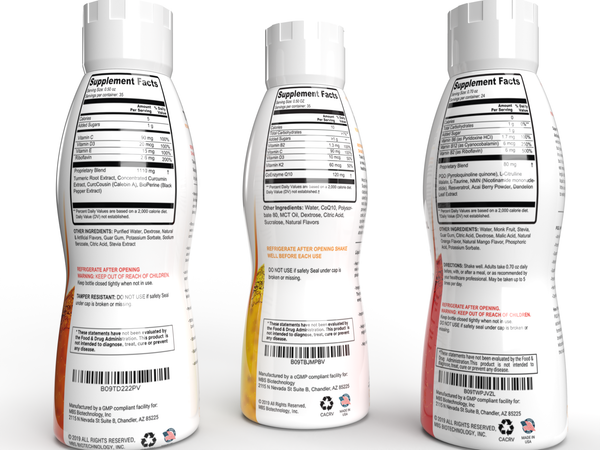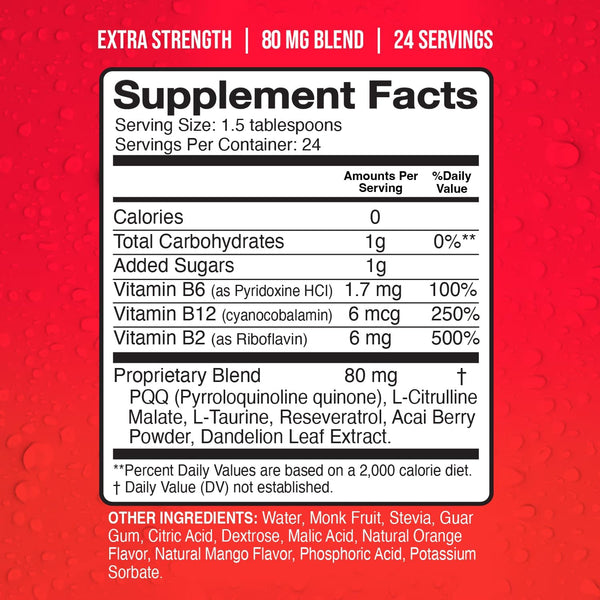
The Ultimate Guide to Vitamin D Drops: Benefits, Signs, Side Effects and More
What Are Vitamin D drops good for?
Vitamin D drops are a form of Vitamin D supplementation, which is designed to provide the body with additional Vitamin D. Vitamin D is a fat-soluble vitamin that is essential for maintaining healthy bones, teeth, and muscles. It also helps regulate the immune system, support cardiovascular health, and maintain healthy skin.
Some of the health benefits of Vitamin D drops include:
-
Supports Bone Health: Vitamin D helps the body absorb calcium, which is necessary for strong and healthy bones.
-
Boosts the Immune System: Vitamin D helps regulate the immune system, which is important for fighting off infections and illnesses.
-
Supports Heart Health: Vitamin D has been shown to help regulate blood pressure and improve cholesterol levels, both of which are important for maintaining heart health.
-
Improves Mood: Vitamin D plays a role in regulating mood and has been linked to reduced symptoms of depression and anxiety.
-
Maintains Healthy Skin: Vitamin D helps regulate skin cell growth and repair, which is important for maintaining healthy, youthful-looking skin.
Is Vitamin D drops good for Adults?
Yes, vitamin D drops are beneficial for adults. Vitamin D is an essential nutrient that helps the body absorb calcium, which is important for strong bones and teeth. It also helps regulate the immune system, maintain healthy skin, and may even lower the risk of certain diseases such as heart disease, diabetes, and some types of cancer.
Adults who are at risk of vitamin D deficiency, such as those who spend a lot of time indoors, have limited sun exposure, or have darker skin, may benefit from taking vitamin D drops.
Is it good to take Vitamin D drops?
Vitamin D drops can be a beneficial supplement for adults who have a deficiency or are at risk of a deficiency. Vitamin D is an essential nutrient that plays a role in many important bodily functions, including bone health, immune system function, and cell growth. However, not everyone needs to take vitamin D drops, as they can also get adequate amounts of the nutrient from sunlight exposure, food sources, and other supplements.
What are the signs you need to take Vitamin D?
Here are some signs that you may need to take vitamin D:
-
Fatigue or tiredness: Vitamin D helps regulate the amount of calcium in your body, and a lack of vitamin D can lead to fatigue and tiredness.
-
Bone and muscle pain: A lack of vitamin D can cause bones to become thin and brittle, leading to pain and weakness.
-
Weak bones: Vitamin D is important for maintaining strong bones, and a deficiency can lead to a condition called osteomalacia, which causes bones to become weak and brittle.
-
Depression: Vitamin D is important for maintaining good mental health, and a lack of vitamin D has been linked to depression and other mood disorders.
-
Weak immune system: Vitamin D helps to boost the immune system, and a deficiency can increase the risk of infections and other health problems.
-
Slow wound healing: Vitamin D is involved in the healing process, and a lack of vitamin D can slow the healing of cuts and bruises.
If you experience any of these symptoms, it's a good idea to talk to your doctor about whether vitamin D supplementation may be beneficial for you.
What Happens if your vitamin D drops too low?
Vitamin D is an essential nutrient that plays a crucial role in several bodily functions. A low level of vitamin D in the body can lead to several health problems, including:
-
Weak bones: Vitamin D helps the body absorb calcium, which is essential for strong bones. Low levels of vitamin D can lead to a condition called osteomalacia, characterized by weak bones and muscle weakness.
-
Increased risk of falls and fractures: Low levels of vitamin D can increase the risk of falls and fractures, especially in older adults.
-
Muscle weakness and pain: Vitamin D is important for muscle function and low levels can cause muscle weakness and pain.
-
Increased risk of autoimmune diseases: Vitamin D helps regulate the immune system, and low levels can increase the risk of autoimmune diseases, such as multiple sclerosis and rheumatoid arthritis.
-
Depression: Low levels of vitamin D have been linked to depression, especially in older adults.
-
Increased risk of heart disease and stroke: Vitamin D has been shown to have a protective effect on the cardiovascular system, and low levels can increase the risk of heart disease and stroke.
It's important to get your vitamin D levels checked by a doctor if you suspect you may be deficient. If you have a deficiency, your doctor can recommend the best way to increase your vitamin D levels, which may include taking supplements, spending more time in the sun, or making dietary changes.
What are the side effects of taking vitamin D drops?
Like any dietary supplement, taking vitamin D drops can cause side effects, although not everyone will experience them. Some of the most common side effects of taking vitamin D drops include:
-
Nausea: Some people may experience an upset stomach or nausea after taking vitamin D drops.
-
Constipation: Vitamin D can affect the way your body absorbs calcium, which can lead to constipation.
-
Weakness or fatigue: High doses of vitamin D can lead to fatigue or weakness.
-
Dry mouth and thirst: Vitamin D can cause you to feel thirsty or have a dry mouth.
-
Headaches: Some people may experience headaches after taking vitamin D drops.
-
Muscle or bone pain: High doses of vitamin D can cause muscle or bone pain.
It's important to keep in mind that these side effects are generally mild and go away on their own. However, if you experience any severe side effects or if the side effects persist, it's best to stop taking vitamin D drops and speak to a healthcare professional. Additionally, it's important to always follow the recommended dose on the label and not to exceed the maximum recommended dose.
How quickly do vitamin D drops work?
The speed at which vitamin D drops start to work can vary depending on various factors such as the individual's current vitamin D levels, the dose taken, and the method of consumption.
Typically, it takes about 2-3 months of consistent daily use for vitamin D levels to reach a stable level in the body. However, some people may notice changes in their symptoms such as improved bone health, mood, and energy levels in as little as a few weeks.
It's important to keep in mind that vitamin D is a fat-soluble vitamin, meaning that the body can store it for long periods of time. So, taking a high dose of vitamin D for a short period of time may not provide the same benefits as taking a lower dose consistently over a longer period.
Does vitamin D Give you energy?
Vitamin D can have an impact on energy levels, although the exact relationship between vitamin D and energy is not entirely clear. Vitamin D plays a role in regulating the levels of calcium and phosphate in the body, which are important for maintaining strong bones and teeth. Adequate vitamin D levels are also necessary for the proper functioning of muscles, including the muscles involved in movement and physical activity. As a result, low levels of vitamin D can lead to feelings of weakness and fatigue, which can impact energy levels.
Additionally, it's important to note that other factors, such as overall health, diet, and physical activity, can also play a role in energy levels, so it's important to consider these factors in addition to vitamin D when addressing feelings of fatigue or low energy.












